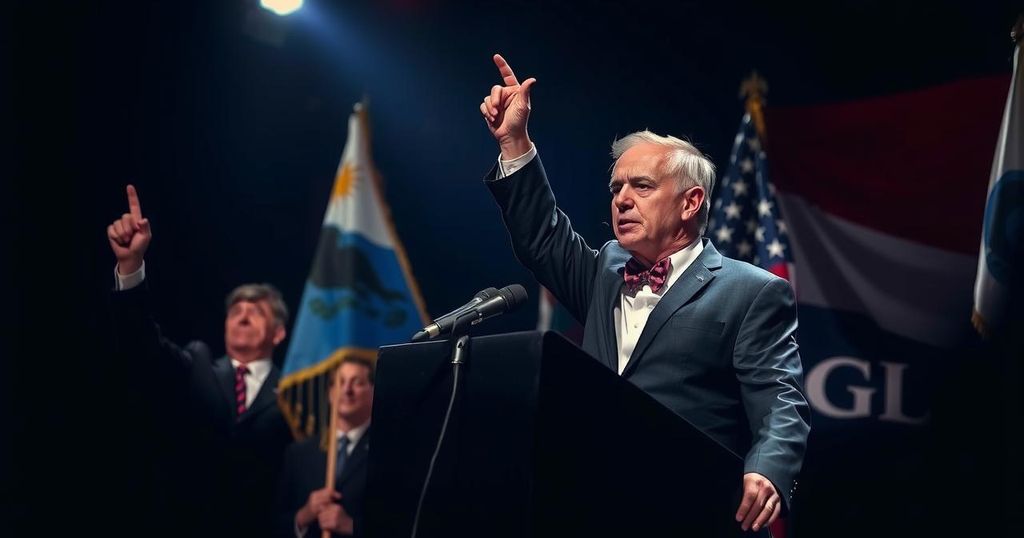World news
ALVARO DELGADO, ARGENTINA, ASIA, ATLANTIC, BROAD FRONT, COLORADO PARTY, CUBA, DELGADO, DEMOCRACY, ELECTIONS, FRONT, JOSE MUJICA, LATIN AMERICAN, LUIS LACALLE POU, MEXICO, NATIONAL PARTY, NORTH AMERICA, OR, PHILIPPINES, POLITICS, PRESIDENTIAL ELECTION, PRESIDENTIAL ELECTIONS, SOUTH AMERICA, TRADE RELATIONS, URUGUAY, VENEZUELA
Elena Martinez
0 Comments
Uruguay’s Presidential Run-Off Emphasizes Democratic Coexistence
In Uruguay’s recent presidential run-off, candidates Alvaro Delgado and Yamandu Orsi showcased a commitment to democratic values amid contrasting political climates in Latin America. With Orsi from the left-wing coalition and Delgado from the ruling conservative party, both have prioritized economic growth and pledged to work collaboratively irrespective of the election outcome, emphasizing the necessity of democratic coexistence.
In Uruguay, a presidential run-off took place, showcasing a contest between conservative candidate Alvaro Delgado and left-wing rival Yamandu Orsi. This election unfolded under the premise of maintaining democratic stability, notably contrasting the political turmoil seen in other Latin American nations such as Mexico and Venezuela. Orsi, representing the leftist Broad Front coalition, previously garnered 44 percent of votes in the first round, whereas Delgado received 27 percent but expected support from a significant portion of third-party voters.
This run-off election is crucial as it follows the Broad Front coalition’s governance until the conservative National Party’s rise in 2019. Both candidates highlight economic enhancement as a key focus, with Orsi emphasizing wage increases for low-income personnel and Delgado advocating for bureaucratic reforms and international trade agreements. Remarkably, both candidates have publicly committed to honoring the election outcome and promoting cooperation post-election. Fernando Pereira, head of the Broad Front coalition, encapsulated this sentiment, emphasizing the importance of “democratic coexistence” in Uruguay’s elections, allowing the process to remain devoid of the political violence that plagued the region’s other countries. Ultimately, the outcome of this election will not only reflect the will of the Uruguayan people but also their commitment to democratic ideals during a pivotal moment in their political history.
Uruguay has long been regarded as a model of democratic stability in a region where many countries grapple with electoral violence and unprecedented political strife. The recent elections are crucial, positioned against a backdrop of changing political forces in Latin America. This election cycle took place amidst an environment where neighboring nations experienced serious electoral disputes, with Uruguay maintaining a notably calm political demeanor. The candidates in this run-off represent different ideologies yet share a commitment to upholding democratic values, a blend of conservatism and leftist principles, signifying the dynamic political landscape of the country.
The recent run-off election in Uruguay demonstrates a commitment to democratic coexistence, contrasting sharply with the political instability observed in other Latin American countries. With candidates from differing ideological backgrounds promising cooperation regardless of the election outcome, Uruguay stands as a beacon of stability and respect for democratic processes. As both candidates focus on economic improvement and respect for electoral results, the elections signify a critical moment in Uruguay’s political landscape, underscoring the nation’s dedication to upholding democracy.
Original Source: www.aljazeera.com




Post Comment